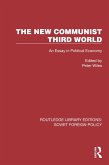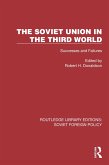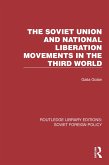Seminar paper from the year 2021 in the subject History Europe - Germany - Postwar Period, Cold War, grade: 8,5, VU University Amsterdam , language: English, abstract: The West German SDS was a leftist student movement that, although primarily based on their own, national issues and outdated structures and institutions, was deeply invested in the fate of Third world countries and the wars that disrupted them. They were only one part of a larger, nearly global movement that demanded freedom for former colonies, less interference from Western countries and the overturn of capitalist forces and structures. One case in which these circumstances appear especially potent, and which gave this movement much of its impetus, was the Vietnam war. How was the SDS influenced by international trends and transnational activism in their protests against the Vietnam war? The Vietnam war was in many ways a watershed event that exacerbated existing criticisms about American influence on the world while bringing up new ones, serving as a unifier for global movements. Accordingly, the primary focus of this text is the peace activism of the SDS and their engagement against the Vietnam war. Although often considered a socio-economic concept, due to the matter at hand the concept of the "Third World", which Vietnam was part of, has to be understood in a political, specifically anti-war way. Because of that, the SDS's activism in this area combined both Third World- and peace activism as one and was influenced by actors that operated in both of these spheres. Besides the Post-War context illustrating the local situation, the context of the Cold War is instrumental to understanding their international linkages and the place the protest movements came from. Through these contexts, opinions about the Vietnam war, the future of their own state and conceptual considerations of the identity of their movements were formed. All alliances that the SDS made and all the inspirations they drew from others have to considered within this larger international context.
Dieser Download kann aus rechtlichen Gründen nur mit Rechnungsadresse in A, B, BG, CY, CZ, D, DK, EW, E, FIN, F, GR, HR, H, IRL, I, LT, L, LR, M, NL, PL, P, R, S, SLO, SK ausgeliefert werden.









